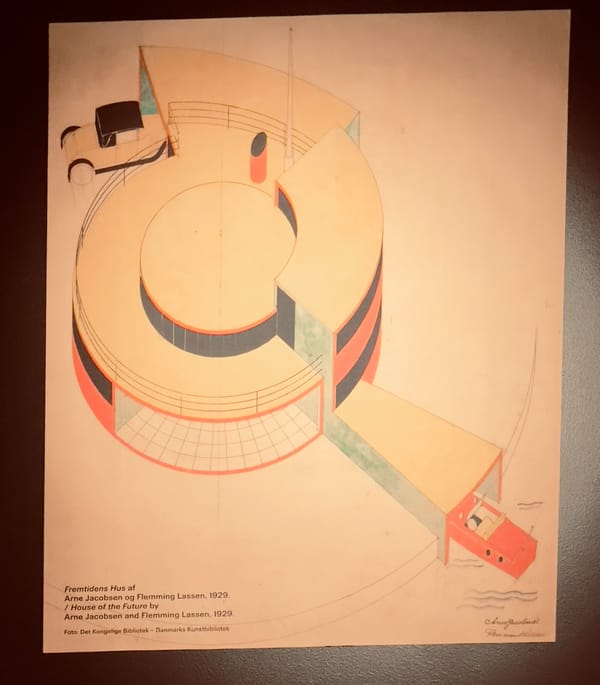Authenticity Is Your Competitive Advantage
Being authentic propels you into the life you always wanted.

I stride into the office at an enormous pace, practically jogging past desks and flocks of coffee-drinking people. The meeting’s about to start, and I’m about to be late—not a good look for someone who just started with a new team. You only get one chance to make a first impression, and I’m about to mess it up.
I finally arrive at the room with the correct number. Nobody’s there. I calm down a little, realizing I’m the first one here. Everyone else seems to be late. My stressful expression softens into a relaxed smile.
Until I realize I’m on the wrong floor.
In seconds, I turn from an office worker into an Olympic sprinter. I run up the stairs and around the corner. My memory might be a bit hazy from the adrenaline, but I’m pretty sure I hurdled someone on my way to the meeting room. I spot the right room and start to slow down. I open the door and step inside. One second later, the clock strikes 3 p.m.—the exact time of the meeting.
Everyone else is already there. They throw me a look, many of them smirking. I need to ease the situation—and I know just the tool for it: humor. Most of my blood is still circulating through my legs after the obstacle course I just ran, so my brain is a little undersupplied. Still, I manage to say something like, “Had to burn off that heavy lunch somehow, right?” (Yes, not my best work, sue me.) It works: most of them laugh, and the atmosphere lightens. Yet, a few of my teammates don’t seem too pleased.
After the meeting, one team member takes me aside. He tells me I should tone down the jokes. Humor shouldn’t be used so often in meetings—because we’re doing serious business here. Fun and jokes, he says, are for after work, not during a meeting. He leaves me with a bit of encouragement that it’s not too late to change.
I’m so relieved. The door hasn’t closed on my dream of becoming a professional bore.
The funny thing is, he’s kind of right. I do tend to use a lot of humor when I communicate. Sometimes maybe even too much. What he doesn’t know is that this very character trait is one of the main reasons I got my current job in the first place. It’s served me well in the past. Honestly, I believe it’s been beneficial not just because people like humor per se, but because using humor is authentic to me.
Trying to be someone I’m not makes me feel dirty. You know that feeling, too—as if something deep inside you warns you that something feels “off.” But this time, that feeling warns you that the imposter is yourself. And in the past, I wore a mask known as people-pleasing.
People-pleasing is poison to your authenticity. If you change yourself to please someone else to avoid friction, then you’re lying to yourself. Not only will it degrade your reputation, but more devastatingly, you will lose trust in yourself because you know you’re not being truthful.
The bad news is that it’s hard to overcome this behavior. The good news is that it’s absolutely possible. Two things worked wonders for me: disagreeing with people and saying no.
Does the statement someone just made align with your beliefs? No? Then disagree. Trash the belief that by disagreeing with someone’s opinion, you’re attacking them personally. If they feel attacked, it’s because their belief is part of their identity. That’s not your problem—it’s theirs. You might think that disagreeing will make them dislike you. That might be true. But they’ll also respect you. Being disliked but respected is much better than being liked but a pushover.
The same goes for saying no. Foremost, being able to say no legitimizes your yes, as Joe Hudson points out:
If you can’t say no, how can anyone trust your yes?
This also adds to your authenticity. Knowing that your no is trustworthy allows you to be your authentic self because you can communicate your stance truthfully.
Saying no doesn’t just make you more trustworthy; it also protects the most important finite resource we have: time. By saying yes to things you don’t want to do (especially when it comes to leisure activities), you cheat yourself because one day we’ll run out of time. When that day comes, I don’t want to be ravaged by regrets.
Authenticity might make some people dislike or even hate you, but it will also help the right people find you. You’ll receive love, friendship, and admiration from those who resonate with you, and you’ll have to bear the disdain of others—but that’s a small price to pay. All the harmony in the world isn’t worth losing yourself. So if someone tells you not to be your authentic self, don’t run to the next meeting—run in the other direction, toward the people you were meant to be with.





